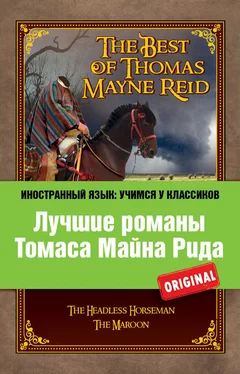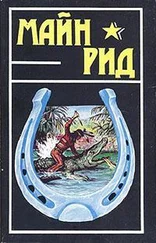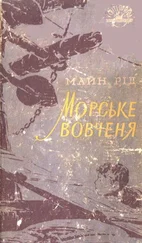Mr Vaughan was too much wound-up in the thread of his own thoughts to notice the emphasis on the word “now,” or the double meaning of his daughter’s words.
“Ha! ha! ha!” laughed he; “Mr Smythje’s purchase won’t dispossess us of Mount Welcome. Don’t be afraid of that, little Kate. But, come, try and guess the price he is to pay?”
“Father, I need not try. I am sure I could not guess it – not within thousands of pounds.”
“Not a thousand pounds! no, not one pound, unless his great big heart weighs that much, and his generous hand thrown into the scale – for that, Catherine, that is the price he is to pay.”
Mr Vaughan wound up this speech with a significant glance, and a triumphant gesture, expressive of astonishment at his own eloquence.
He looked for a response – one that would reciprocate his smiles and the joyful intelligence he fancied himself to have communicated.
He looked in vain. Notwithstanding the perspicuity of his explanation, Kate obstinately refused to comprehend it.
Her reply was provokingly a “shirking of the question.”
“His heart and his hand, you say? Neither seem very heavy. But is it not very little for an estate where there are many hands and many hearts, too? To whom does he intend to give his? You have not let me know that, papa!”
“I shall let you know now,” replied the father, his voice changing to a more serious tone, as if a little nettled by Kate’s evident design to misunderstand him. “I shall let you know, by telling you what I intend to give him for Montagu Castle. I told you we were both to be buyers in this transaction. It is a fair exchange, Kate, hand for hand, and heart for heart. Mr Smythje freely gives his, and I give yours .”
“Mine!”
“Ay, yours. Surely, Kate, I have not made a mistake? Surely you are agreeable to the exchange?”
“Father,” said the young girl, speaking in a tone of womanly gravity, “there can be no exchange of hearts between Mr Smythje and myself. He may have given his to me. I know not, nor do I care. But I will not deceive you, father. My heart he can never have. It is not in my power to give it to him.”
“Nonsense!” exclaimed Mr Vaughan, startled by this unexpected declaration; “you are deceiving yourself, my child, when you talk thus. I do not see how you can fail to like Mr Smythje – so generous, so accomplished, so handsome as he is! Come, you are only jesting, Kate? You do like him? You do not hate him?”
“No, no! I do not hate him! Why should I? Mr Smythje has done nothing to offend me. I believe he is very honourable.”
“Why, that is almost saying that you like him!” rejoined the father, in a tone of returning gratification.
“Liking is not love,” murmured Kate, as if speaking to herself.
“It may turn to it,” said the Custos, encouragingly. “It often does – especially when two people become man and wife. Besides, it’s not always best for young married folks to be too fond of each other at first. As my old spelling book used to say, ‘Hot love soon grows cold.’ Never fear, Kate! you’ll get to like Mr Smythje well enough, when you come to be the mistress of Montagu Castle, and take rank as the grandest lady of the Island. Won’t that be happiness, little Kate?”
“Ah!” thought the young Creole, “a cabin shared with him would be greater happiness – far, far greater!”
It is needless to say that the “him” to whom the thought pointed was not Smythje.
“As Mrs Montagu Smythje,” proceeded the Custos, with a design of painting the future prospects of his daughter in still more glowing tints, “you will have troops of friends – the highest in the land. And remember, my child, it is not so note . You know it, Catherine?”
These last words were pronounced in a tone suggestive of some secret understanding between father and daughter.
Whether the speech produced the desired effect, he who made it did not stay to perceive; but continued on in the same breath to finish the rose-coloured picture he had essayed to paint.
“Yes, my little Kate! you will be the observed of all observers – the cynosure [535] of every eye, as the poets say. Horses, slaves, dresses, carriages at will. You will make a grand tour to London – egad! I feel like going myself! In the great metropolis you will hob-nob with lords and ladies; visit the operas and balls, where you will be a belle, my girl – a belle, do you hear? Every one will be talking of Mrs Montagu Smythje! How do you like it now?”
“Ah, papa!” replied the young Creole, evidently unmoved by these promises of pomp and grandeur, “I should not like it at all. I am sure I should not. I never cared for such things – you know I do not. They cannot give happiness – at least, not to me. I should never be happy away from our own home. What pleasure should I have in a great city? None, I am sure; but quite the contrary. I should miss our grand mountains and woods – our beautiful trees with their gay, perfumed blossoms – our bright-winged birds with their sweet songs! Operas and balls! I dislike balls; and to be the belle of one – papa, I detest the word!”
Kate, at that moment, was thinking of the Smythje ball, and its disagreeable souvenirs – perhaps the more disagreeable that, oftener than once, during the night she had heard the phrase “belle of the ball” applied to one who had aided in the desolation of her heart.
“Oh! you will get over that dislike,” returned Mr Vaughan, “once you go into fashionable society. Most young ladies do. There is no harm in balls – after a girl gets married, and her husband goes with her, to take care of her – no harm whatever. But now, Kate,” continued the Custos, betraying a certain degree of nervous impatience, “we must come to an understanding. Mr Smythje is waiting.”
“For what is he waiting, papa?”
“Tut! tut! child,” said Mr Vaughan, slightly irritated by his daughter’s apparent incapacity to comprehend him. “Surely you know! Have I not as good as told you? Mr Smythje is going to – to offer you his heart and hand; and – and to ask yours in return. That is what he is waiting to do. You will not refuse him? – you cannot: you must not!”
Loftus Vaughan would have spoken more gracefully had he omitted the last phrase. It had the sound of a command, with an implied threat; and, jarring upon the ear of her to whom it was addressed, might have roused a spirit of rebellion. It is just possible that such would have been its effect, had it been spoken on the evening before the Smythje ball, instead of the morning after.
The incidents occurring there had extinguished all hope in the breast of the young Creole that she should ever share happiness with Herbert Vaughan – had, at the same time, destroyed any thought of resistance to the will of her father; and, with a sort of apathetic despair, she submitted herself to the sacrifice which her father had determined she should make.
“I have told you the truth,” said she, gazing fixedly in his face, as if to impress him with the idleness of the arguments he had been using. “I cannot give Mr Smythje my heart; I shall tell him the same.”
“No – no!” hastily rejoined the importunate parent; “you must do nothing of the kind. Give him your hand; and say nothing about your heart. That you can bestow afterwards – when you are safe married.”
“Never, never!” said the young girl, sighing sadly as she spoke. “I cannot practise that deception. No, father, not even for you. Mr Smythje shall know all; and, if he choose to accept my hand without my heart – ”
“Then you promise to give him your hand?” interrupted the Custos, overjoyed at this hypothetical consent.
Читать дальше
Конец ознакомительного отрывка
Купить книгу











